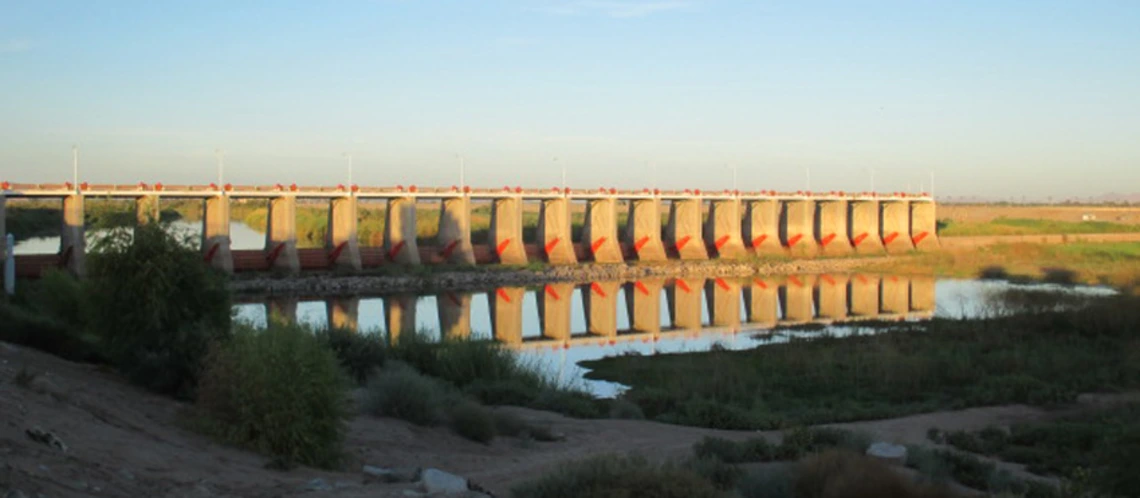Recently Published White Paper Addresses US-Mexico Cooperation on Water

The white paper, “Water Management on the U.S.-Mexico Border: Achieving Water Sustainability and Resilience Through Cross-Border Cooperation” is posted on our updated Transboundary Aquifer Assessment Program website.
 The United States International Boundary and Water Commission (USIBWC) invited a group of researchers to write a white paper to help strengthen its “ability to respond to the challenges of US-Mexico border water management in the 21st century." The paper, “Water Management on the U.S.-Mexico Border: Achieving Water Sustainability and Resilience Through Cross-Border Cooperation,” is organized into three main sections: 1) institutional context; 2) US-Mexico border water management challenges and opportunities in the 21st century, and 3) institutional and policy needs. The paper notes that population and economic growth require a steady water supply, which border cities will likely struggle to secure, and that it is critical to incorporate future climate scenarios in future agreements while also considering environmental justice concerns.
The United States International Boundary and Water Commission (USIBWC) invited a group of researchers to write a white paper to help strengthen its “ability to respond to the challenges of US-Mexico border water management in the 21st century." The paper, “Water Management on the U.S.-Mexico Border: Achieving Water Sustainability and Resilience Through Cross-Border Cooperation,” is organized into three main sections: 1) institutional context; 2) US-Mexico border water management challenges and opportunities in the 21st century, and 3) institutional and policy needs. The paper notes that population and economic growth require a steady water supply, which border cities will likely struggle to secure, and that it is critical to incorporate future climate scenarios in future agreements while also considering environmental justice concerns.
The white paper makes recommendations for actions that USIBWC might take, including 1) sustaining its technical advisory bodies on the treaty rivers in partnership with domestic water agencies; 2) developing aquifer storage and recharge programs; 3) working to build a framework agreement on transboundary groundwater; 4) addressing the conjunctive uses of aquifers and surface flows. Expanding the USIBWC's current scope to get in front of, versus only reacting to, border water challenges could address issues before they become a crisis. The authors emphasize that USIBWC should continue its efforts to find solutions to binational water management through an optimally diverse range of stakeholders and adequate levels of participation.
Moreover, the paper highlights that in combination with conventional infrastructure, green infrastructure can help improve transboundary water management in a decentralized but integrated manner while improving the resilience of border communities. Connectivity and an integrative approach should guide management of basins in the US-Mexico border region. Finally, it is proposed to establish a science advisory group that would develop specific, actionable ideas into a framework deployed in different binational watersheds along the US-Mexico border.
Leading authors:
Irasema Coronado (Arizona State University), Francisco Lara-Valencia (Arizona State University), and Stephen Mumme (Colorado State University)
Contributing Authors:
Christopher Brown (New Mexico State University), Paul Ganster (San Diego State University), Hilda García (El Colegio de la Frontera Norte), Donna Lybecker (Idaho State University), Sharon Megdal (University of Arizona), Rosario Sanchez (Texas A&M University), Alan Sweedler (San Diego State University), Robert G. Varady (University of Arizona), Adriana Zuñiga (University of Arizona)
Image: Morelos Dam, Sharon B. Megdal

